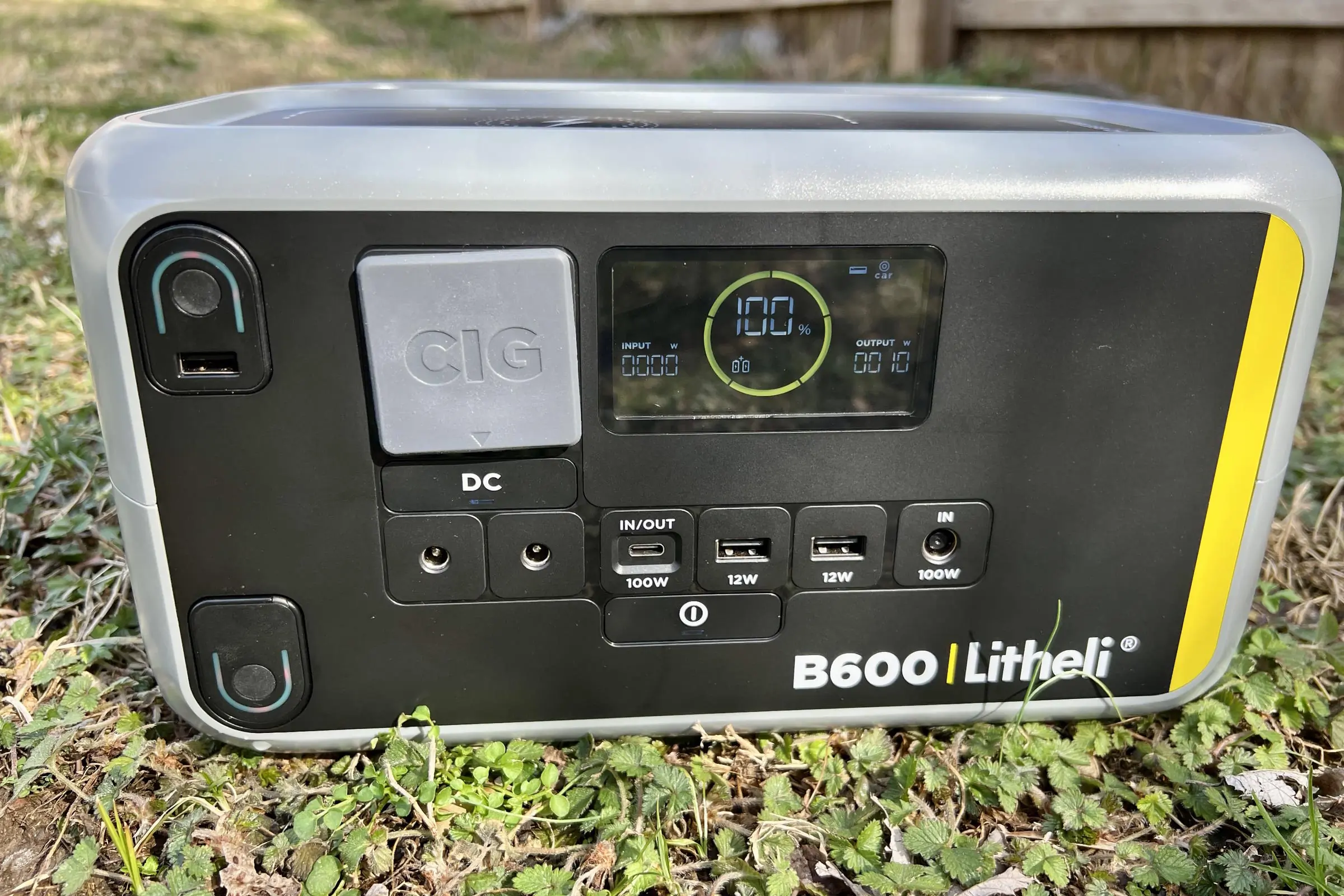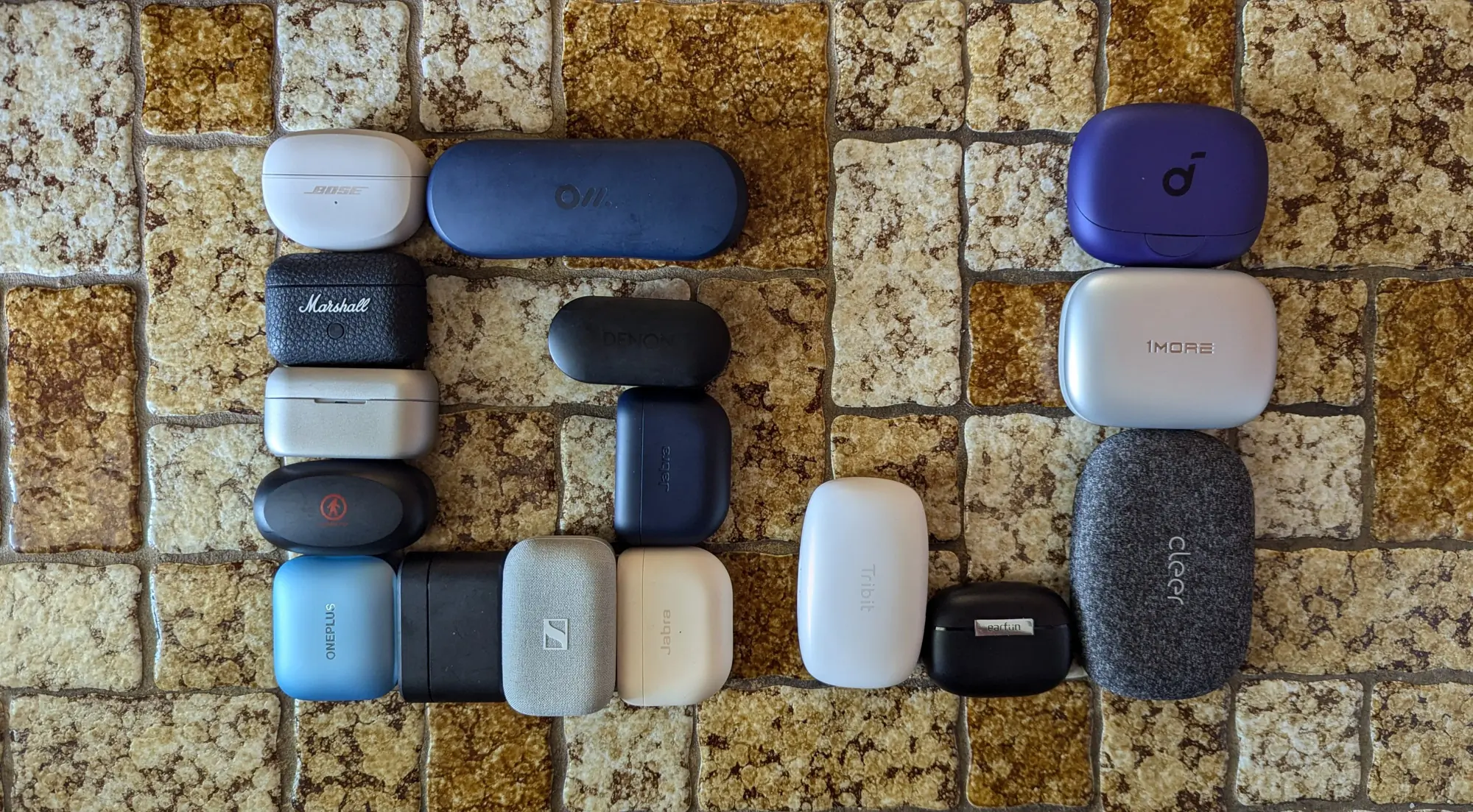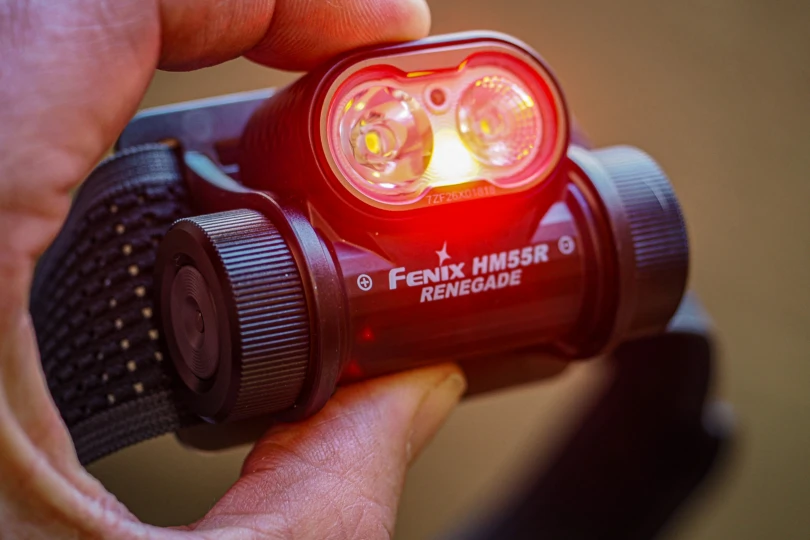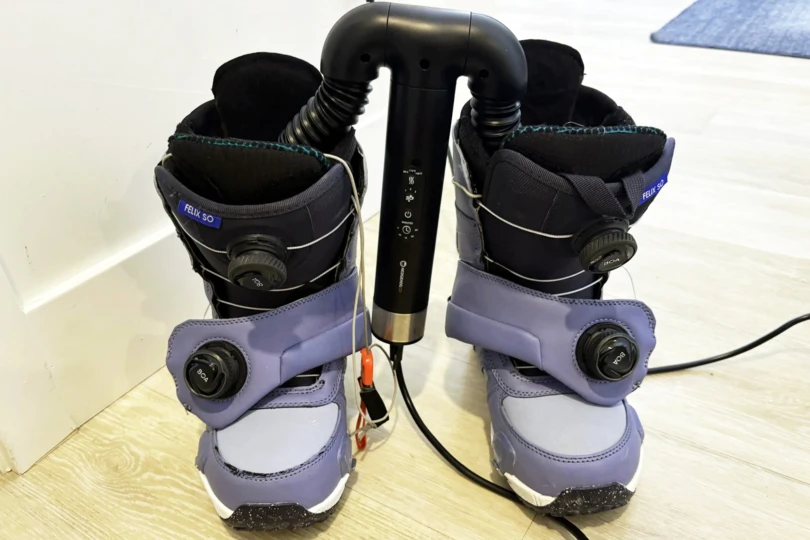The portable power station space has become a crowded one in recent years, with dozens of companies now offering on-the-go charging solutions. With so much competition vying for our dollars, it has become increasingly difficult for manufacturers to find a way to stand out from the crowd.
But Litheli — a relative newcomer to this market — has introduced a new model that brings some innovative ideas to the table to help separate it from the pack.
The Litheli B600 portable power station includes all the bells and whistles you would expect from such a device. That includes plenty of charging ports and an easy-to-read LCD display. But what makes it so interesting is its set of small modular batteries that detach from the main unit for convenient power on the go. Those same power cells also plug into a line of other Litheli gadgets.
In short: The Litheli B600 ($499) portable power station comes with a 600Wh capacity, a 600W output, and nine charging ports wrapped in a lightweight and compact design. But the unit’s detachable 4,000 mAh U-battery packs are its defining feature, bringing versatility, convenience, and the promise of future potential. After putting the B600 through its paces for a month, I was impressed with its capabilities.
- Capacity: 562 Wh
- Rated power: 600 W
- Weight: 12.96 lbs.
- Ports: 2 AC, 1 12V DC, 2 DC5521, 2 USB-A, 1 100W USB-CD PD, 1 15W wireless charging pad
- Charging time: 80%, 100% in 7.5 hours via USB-C
- Lifespan: 500+ cycles
Pros
- Compact and lightweight
- Wireless charging pad
- Detachable U-batteries add versatility and convenience
- U-battery ecosystem has potential
Cons
- Could use more USB-C ports
- U-battery ecosystem is still unproven
Litheli B600 Portable Power Station Review
Standard Features
Lightweight and compact, the B600 packs a lot of features into a relatively small form factor. The charging station weighs about 13 pounds. It can easily be carried in one hand using its built-in handle.
Power is supplied via a 600W battery, with a maximum output of the same wattage. That’s enough to recharge smartphones, tablets, and laptops and run small appliances like a portable coffee maker or an LCD TV.
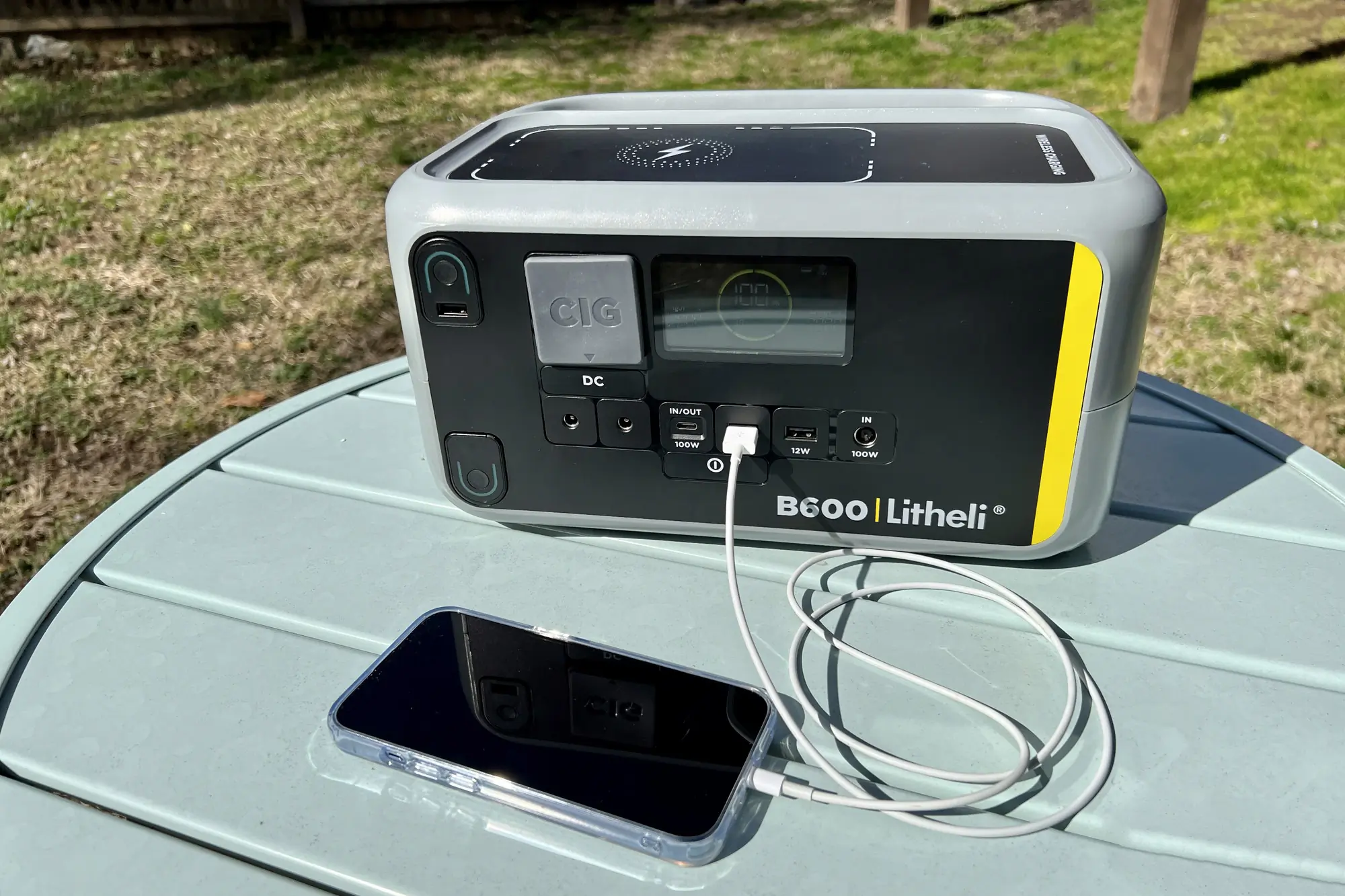
Thanks to its array of charging ports, the B600 can supply power to up to nine gadgets simultaneously. The unit comes with two 120V AC outlets, a 12V car port, and dual DC5521 ports. It also comes with two standard USB-A ports and a single 100W USB-C PD (power delivery) port. That pulls double duty supplying power back to the onboard battery when the B600 needs a recharge.
The top of the power station also includes a large 15W wireless charging pad. That works great with devices that support the Qi charging standard.
Each of those ports adds versatility and functionality to the Litheli B600. But having just one USB-C port limits its usefulness. USB-C is the future of charging for mobile devices, laptops, and other small electronics. A lack of those ports feels shortsighted. And because that lone port is also used to recharge the power station itself, it is often occupied by the B600’s power adapter, making this oversight all the more glaring.
To be fair, most competing models also have a limited number of USB-C ports, which needs to be addressed by the industry as a whole moving forward.
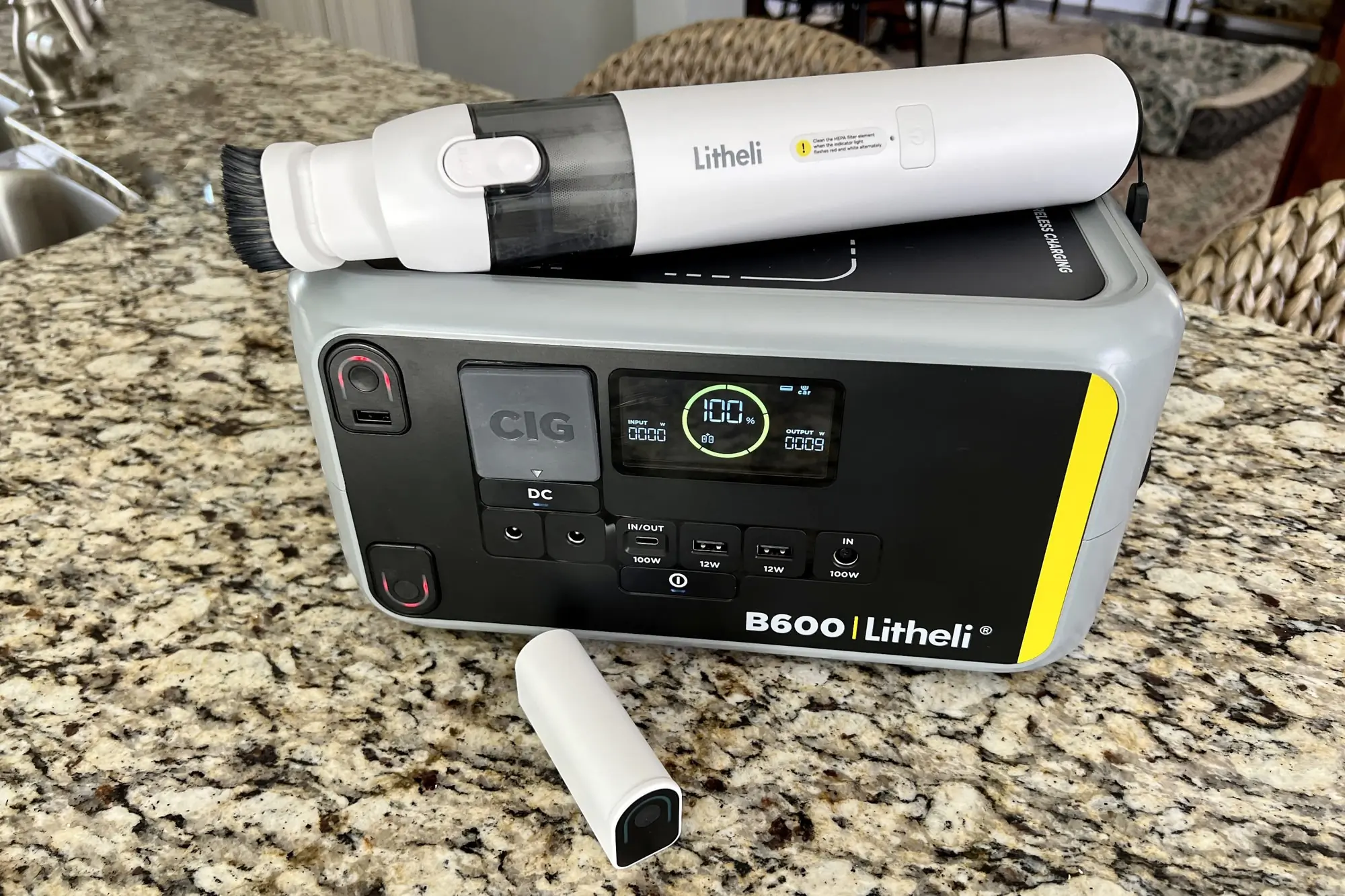
Recharging at Home and on the Go
As with most other portable power stations, the B600’s batteries can be replenished in three ways. In addition to a USB-C power adapter that plugs into a wall outlet, the unit also ships with a cable. That allows charging from the 12V DC port found in most vehicles. Litheli also includes a cable for charging the power station from a solar panel. It’s another good option for use in the field.
Recharge times vary depending on the method used. Plugging the power station into a 120V home outlet takes the battery from 0 to 80% charge in about 6 hours. That’s fairly typical for a device of this size. Charging the Litheli B600 from a 12V carport requires approximately 7-8 hours. And, using solar energy adds an additional 2-4 hours. Litheli’s 100W solar panel proved quite efficient when placed in direct sunlight. But cloud cover, shadows, and the movement of the sun can limit charging speeds.
While most of the specs and features listed above are useful, they aren’t especially noteworthy. Plenty of other power stations offer similar-sized batteries and even more ports than the Litheli B600. Even the built-in wireless charging pad can be found on other models.
But where this unit separates itself from the competition is its modular battery packs. These slide into proprietary charging slots but pop out to take with you in a backpack, purse, or pocket.
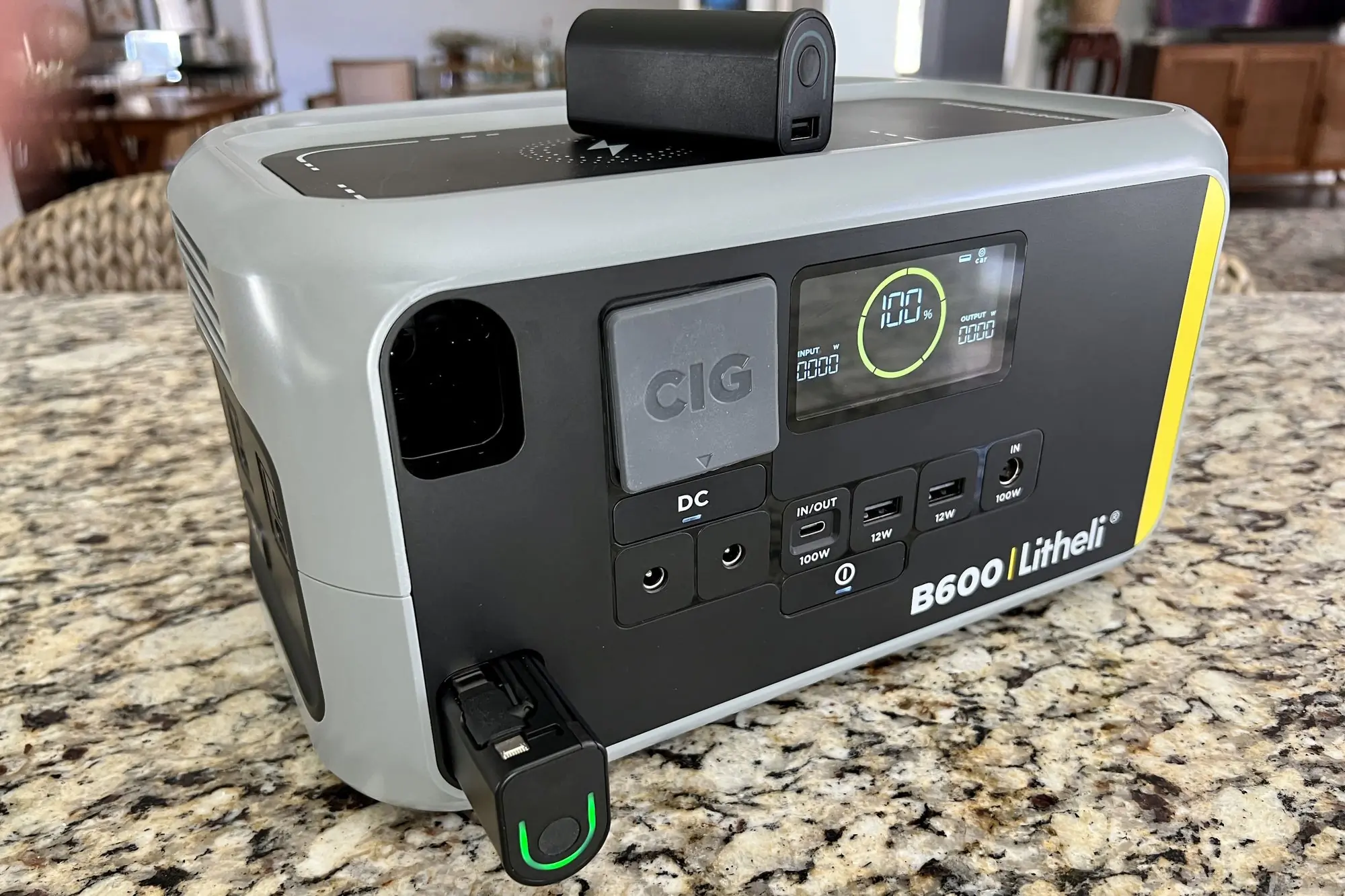



Versatile Battery Packs
Dubbed U-batteries for their shape, these lithium-ion power cells come with a built-in USB-C port. They have a capacity of 4000 mAh. That’s enough to recharge most smartphones at least once, with energy to spare. And the batteries weigh just 4.1 ounces and measure 3.25 inches in length. So they are small enough to carry with you wherever you go.
When you return home, simply slide the battery back into an open slot on the B600. It will automatically recharge and be ready for the next time you need it.
The B600 ships with two U-batteries, one of which includes a standard USB-A port for charging older devices. Additional batteries can be purchased separately from Litheli’s website for $40. Those standalone versions come in four colors and have a built-in cable to connect with nearly any gadget. Otherwise, they look just like regular U-batteries and recharge using the same proprietary port on the power station.
Litheli has big plans for using the U-batteries to power other devices. The company hopes to build an ecosystem of tools and cleaning equipment that use batteries as a power source. So far, the choices are limited to a few wireless vacuum cleaners. But other gadgets are in development.
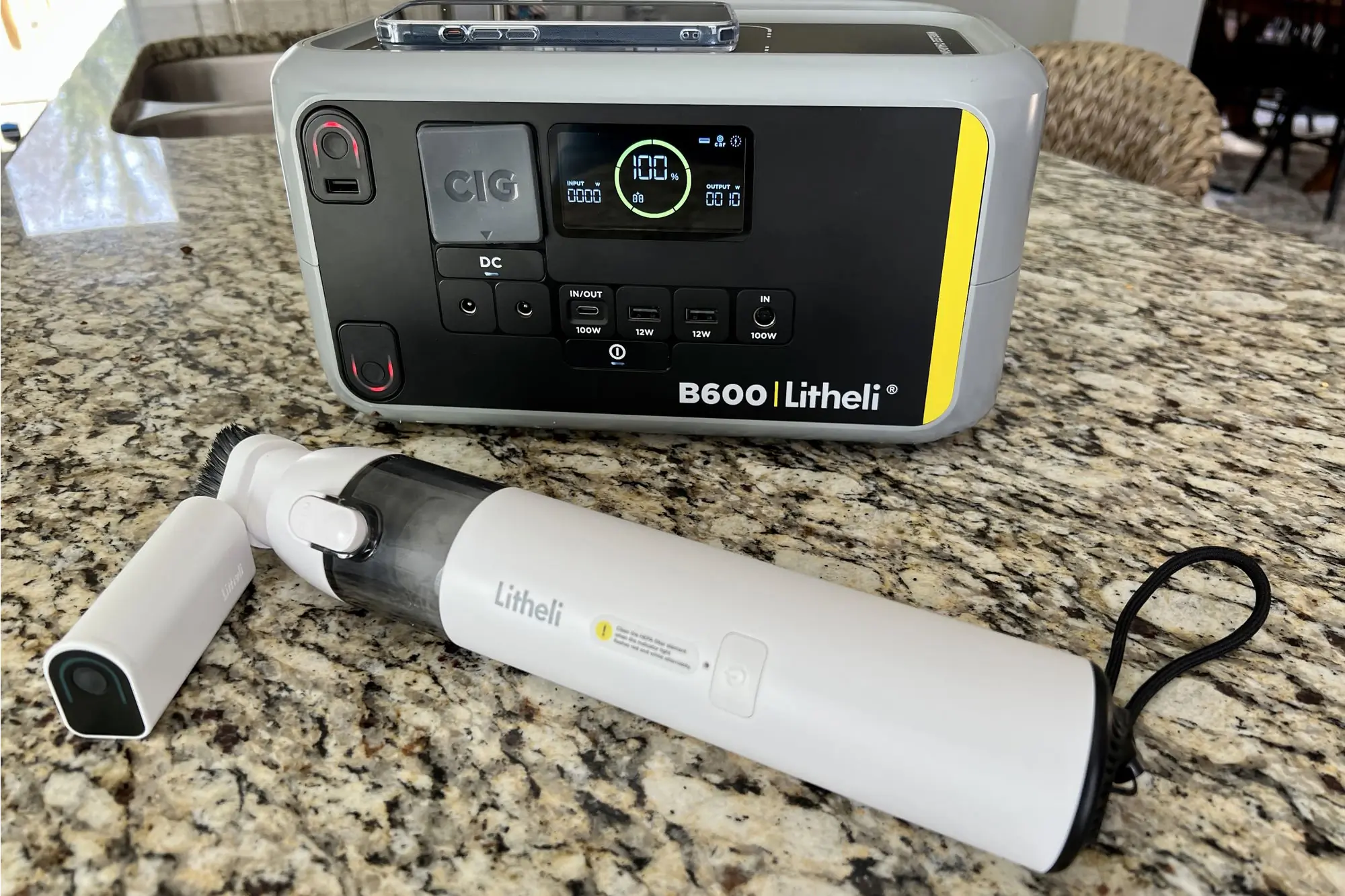



An Ecosystem of Possibilities
To help us understand how the U-battery ecosystem works, Litheli included a U4 Cordless Handheld Vacuum Cleaner as part of our test kit. Litheli B600 owners can simply pop one of their U-batteries out of the power station and slot it into the vacuum cleaner to power it on. The device is surprisingly powerful and useful. It easily picks up dust and debris. And while the company offers a large unit for use around the house, the handheld version is perfect for use in RVs, camper vans, cabins, and other small spaces.
Litheli’s U-batteries help give the Litheli B600 its own identity in the power station space. The company’s ambitions of building a larger ecosystem aside, the small battery packs are a convenient way to recharge on the go. Whether you’re just heading out to run errands in town or getting on an airplane for a cross-country flight, simply knowing that you have an always-charged portable power cell at your disposal is very handy.
Litheli hopes that will translate into owners buying other devices in their lineup. But that will depend on the types of gadgets the brand adds to its lineup.
One of the other things that makes the B600 an attractive option is its price. The power station sells for $500 (currently $400 for a limited time). That is highly competitive considering its specs. The included U-batteries bring even more value to this product, which has the potential to be even more versatile depending on how its ecosystem grows and matures in the future.
Conclusion: Litheli B600
The Litheli B600 portable power station is a lightweight and compact model with plenty of charging ports and a 600-watt capacity. But what separates it from the competition is its proprietary U-batteries, which detach from the unit itself for recharging mobile devices on the go. These 4000 mAh power cells are perfect for travel and can power other Litheli products, including cleaning equipment and a line of upcoming tools.
If you’re in the market for a portable power station, the Litheli B600 is worth serious consideration. It packs a lot of features and power into a compact space and is more versatile than most other models currently on the market.
For car campers, RVers, and van lifers, this unit delivers everything you need for on-the-go power without taking up a lot of space. And while it doesn’t offer enough capacity to power your home during a blackout, it can run small appliances and other gadgets to help you weather the storm.
For more information, visit the Litheli website.
